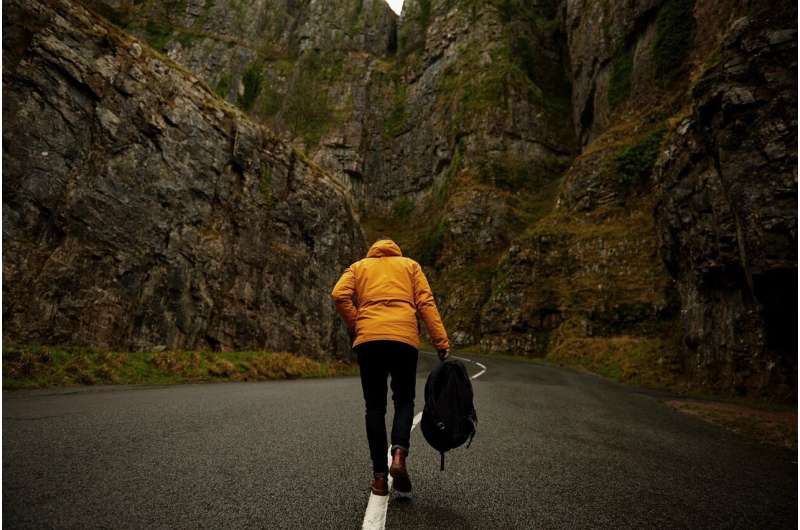New study finds slow walkers four times more likely to die from COVID-19: study

Slow walkers are almost four times more likely to die from COVID-19, and have over twice the risk of contracting a severe version of the virus, according to a team of researchers from the National Institute for Health Research (NIHR) Leicester Biomedical Research Centre led by Professor Tom Yates at the University of Leicester.
The study of 412,596 middle-aged UK Biobank participants examined the relative association of body mass index (BMI) and self-reported walking pace with the risk of contracting severe COVID-19 and COVID-19 mortality.
The analysis found slow walkers of a normal weight to be almost 2.5 times more likely to develop severe COVID-19 and 3.75 times more likely to die from the virus than normal weight fast walkers.
Professor Yates, Lead Researcher for the study and a Professor of Physical Activity, Sedentary Behaviour and Health at the University of Leicester said:-
"We know already that obesity and frailty are key risk factors for COVID-19 outcomes. This is the first study to show that slow walkers have a much higher risk of contracting severe COVID-19 outcomes, irrespective of their weight.
"With the pandemic continuing to put unprecedented strain on health care services and communities, identifying individuals at greatest risk and taking preventative measures to protect them is crucial."
A further key finding from this research was that normal weight slow walkers are more at risk for both severe COVID-19 and COVID-19 mortality than fast walkers with obesity. Furthermore, risk was uniformly high in normal weight slow walkers and slow walkers with obesity.
Professor Yates continued:
"Fast walkers have been shown to generally have good cardiovascular and heart health, making them more resilient to external stressors, including viral infection but this hypothesis has not yet been established for infectious disease.
"Whilst large routine database studies have reported the association of obesity and fragility with COVID-19 outcomes, routine clinical databases do not currently have data on measures of physical function or fitness.
"It is my view that ongoing public health and research surveillance studies should consider incorporating simple measures of physical fitness such as self-reported walking pace in addition to BMI, as potential risk predictors of COVID-19 outcomes that could ultimately enable better prevention methods that save lives."
More information: Thomas Yates et al, Obesity, walking pace and risk of severe COVID-19 and mortality: analysis of UK Biobank, International Journal of Obesity (2021). DOI: 10.1038/s41366-021-00771-z

















